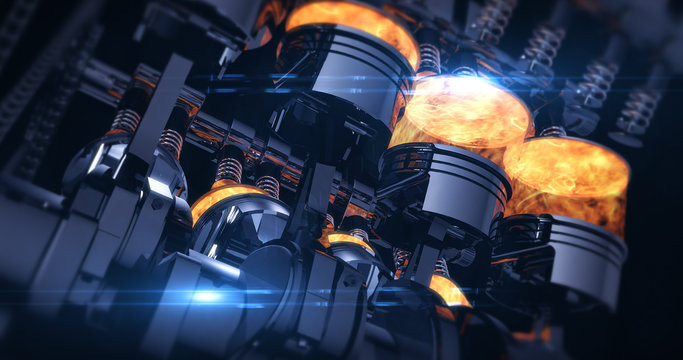- April 21, 2023
- By Tess
- In Diesel, Engine
- Tags diesel, Diesel Engine, diesel fuel, technology
- 928
- 0

Diesel technology has come a long way since the first diesel engine was invented over 120 years ago. With advances in engineering and technology, diesel engines have become more powerful, efficient, and environmentally friendly. But what does the future hold for diesel technology? In this blog post, we’ll explore some of the latest innovations in diesel technology and what they could mean for the future of diesel engines.
One of the biggest trends in diesel technology is the shift towards cleaner, more sustainable fuel sources. Diesel engines are notorious for their high emissions of particulate matter and nitrogen oxides, which can contribute to air pollution and climate change. To address this problem, researchers and manufacturers are exploring alternative fuels that can reduce or eliminate these emissions.
One promising alternative fuel is biodiesel, which is made from renewable sources such as vegetable oils or animal fats. Biodiesel can be used in diesel engines with little or no modification, and can reduce emissions of particulate matter and carbon monoxide by up to 50%. In addition, biodiesel can be produced domestically, reducing our dependence on foreign oil.
Another promising alternative fuel is hydrogen, which can be used to power fuel cells that generate electricity for electric motors. While hydrogen-powered vehicles are still in the early stages of development, they have the potential to be more efficient and cleaner than traditional diesel engines. Hydrogen fuel cells emit only water and heat as byproducts, and the hydrogen itself can be produced from renewable sources such as wind or solar power.
In addition to alternative fuels, diesel engine manufacturers are also exploring new technologies to improve the efficiency and performance of diesel engines. One area of focus is the use of advanced fuel injection systems, which can deliver fuel more precisely and at higher pressures than traditional injectors. This can improve fuel efficiency and reduce emissions while also increasing power output.
Another area of research is the use of hybrid powertrains, which combine a diesel engine with an electric motor to improve efficiency and reduce emissions. Hybrid diesel-electric vehicles have been used in buses and commercial trucks for several years, and some manufacturers are now developing hybrid systems for passenger cars as well. These systems can significantly improve fuel economy and reduce emissions in stop-and-go traffic, where diesel engines are less efficient.
Finally, researchers and manufacturers are exploring new materials and designs to make diesel engines lighter, more durable, and more efficient. One area of research is the use of lightweight materials such as aluminum or composites to reduce the weight of the engine without sacrificing durability. Another area is the use of advanced computer simulations to optimize engine design and performance, allowing engineers to test new designs more quickly and accurately.
Overall, the future of diesel technology looks bright. With advances in alternative fuels, hybrid powertrains, advanced fuel injection systems, and new materials and designs, diesel engines have the potential to be even more powerful, efficient, and environmentally friendly than they are today. While there are still challenges to overcome, such as reducing emissions of nitrogen oxides and particulate matter, the ongoing research and development in diesel technology is a promising sign for the future.





